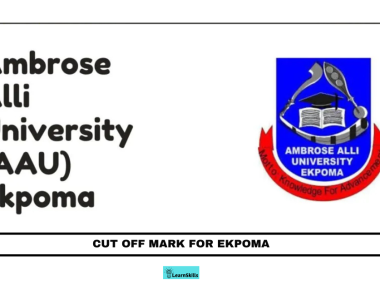Understanding the cut-off mark for the University of Benin (UNIBEN) is crucial for your admission process. For the 2025/2026 academic session, the UNIBEN cut-off mark is 200.
Familiarizing yourself with the cut-off mark can help you strategize your application and improve your chances of acceptance.
You must ensure that your JAMB score aligns with the specific cut-off marks for your chosen program. It’s important to stay updated on any changes to these marks, as they can vary each academic year.
By knowing the cut-off mark and taking the right steps, you can set yourself up for success in UNIBEN. Read on for tips and further details to help you navigate this important aspect of your academic journey.
Understanding UNIBEN Admissions and Cut-Off Marks
When applying for admission to the University of Benin (UNIBEN), it’s crucial to understand the admissions process and the role of cut-off marks.
General Admission Requirements
To gain admission into UNIBEN, you need to fulfill certain requirements. First, you must have a minimum of five credit passes in your O’Level results. These should include English Language and Mathematics with relevant subjects for your chosen course.
You must sit for the Unified Tertiary Matriculation Examination (UTME). Your UTME score is important in determining your eligibility for the post-UTME screening.
After passing UTME, it’s important to register and take the post-UTME screening, it is an additional step in the admission process.
Role of JAMB in the Admission Process
The Joint Admission and Matriculation Board (JAMB) oversees the admission process for higher education in Nigeria. Every applicant must score above the JAMB cut-off mark, which is set annually. This mark serves as a baseline for schools like UNIBEN.
For the 2025/2026 session, the JAMB cut-off mark for UNIBEN is often influenced by the number of applicants and their performance.
Meeting this requirement is essential as it ensures that you can proceed to the next stage, the university’s post-UTME screening.
Importance of Cut-Off Marks in Selection
Cut-off marks are crucial in the selection process for admission into UNIBEN. There are two types: the general cut-off mark set by JAMB and the departmental cut-off marks specific to each program.
For competitive courses such as Medicine and Pharmacy, departmental cut-off marks are typically higher than the general mark. This means that even if you meet the general cut-off, you may still need to exceed the departmental criteria to secure admission.
Annual Variations in Cut-Off Marks
Cut-off marks can change each academic year based on various factors including the overall performance of candidates in the UTME and the number of applicants for each program.
For the 2025/2026 academic session, you must stay updated on the general and departmental cut-off marks. Changes can occur over the years, so checking official announcements is crucial for your preparation.
These variations can significantly impact your chances for admission, so ensure you are informed and ready to meet the requirements for your desired course.
Faculty-Specific Admission Criteria and Cut-Off Marks
Understanding the cut-off marks for different faculties at UNIBEN is crucial for prospective students. Each faculty has specific requirements based on the courses offered.
Cut-Off Marks for Professional Courses
Professional courses’ cut-off marks are generally higher due to the demand and competition. Common professional courses include:
- Medicine and Surgery: Often requires a minimum cut-off mark of 260.
- Law: Typically has a cut-off at 250.
- Pharmacy: Usually demands a cut-off of at least 250.
- Engineering courses: Generally set at 220 or higher.
These scores can vary by year and should be confirmed via official sources. Meeting this mark does not guarantee admission, as other factors like post-UTME scores and departmental guidelines are also considered.
Arts, Social Sciences, and Management Sciences
For faculties like Arts and Social Sciences, cut-off marks tend to be lower than those for professional courses. Important points include:
- Political Science: Cut-off marks around 200 are typical.
- Psychology: Minimum requirements often hover around 200.
- Management Sciences (like Accounting): Generally set at about 200.
These figures are guides and can fluctuate yearly. Always check the precise cut-offs as they can vary by department and course.
Science and Technology Fields
In the Science and Technology faculties, cut-off marks reflect the rigorous nature of these courses. Key details include:
- Computer Science: Often has a cut-off of about 200.
- Medical Laboratory Science: Usually requires a mark of at least 220.
- Agricultural Sciences: Typically, the cut-off is around 180 to 200.
These marks ensure candidates have a solid foundation for the challenges ahead. Each department may adjust requirements annually, so it’s essential to stay informed.
Departments with Special Admission Procedures
Certain departments at UNIBEN may have unique admission criteria. These include additional assessments or prerequisites. Some examples are:
- Nursing: Besides the JAMB cut-off, practical assessments may be required.
- Engineering: Some branches could have tests based on foundational knowledge.
Always check with the specific department for any extra conditions or tests. This information can be crucial for candidates aiming for competitive fields like these.
The Impact of Post-UTME on Admissions
The Post-UTME screening plays a vital role in the admission process at UNIBEN. This assessment helps determine candidate suitability based on their UTME scores and performance in the screening exam.
Overview of the Post-UTME Screening Process
The post-UTME screening at UNIBEN typically occurs after candidates have achieved the minimum JAMB cut-off mark.
This exam assesses various academic skills and knowledge relevant to the chosen program. It comprises multiple-choice questions and may include written components.
Candidates who pass the Post-UTME gain further consideration for admission. The results from this exam are essential as they form part of the aggregate score used in decision-making. You’ll receive your score, which reflects your performance and impacts your chances of securing a spot.
Calculating the Aggregate Admission Score
To determine your aggregate score at UNIBEN, you combine your UTME score and your post-UTME screening score. This score is critical for admission evaluation. Here’s how you can calculate it:
- UTME Score: Your score from the JAMB examination.
- Post-UTME Score: Your score from the UNIBEN screening exam.
The total aggregate score is often calculated on a scale, with a specific weight given to each component. For instance, if your UTME score is out of 400, and your Post-UTME score is out of 100, the combined score helps determine your rank among other candidates.
Post-UTME Cut-Off Marks
UNIBEN sets specific cut-off marks for the post-UTME exam. These marks can differ by department. For the 2025/2026 academic session, the post-UTME cut-off mark was set at 50%. This means candidates must score at least this mark to be considered for admission.
The cut-off marks vary yearly based on the number of applicants and their overall performance. Meeting the cut-off mark does not guarantee admission. The aggregate score is crucial in the selection process.
Also, higher aggregate scores improve your chances significantly, especially for competitive courses.










